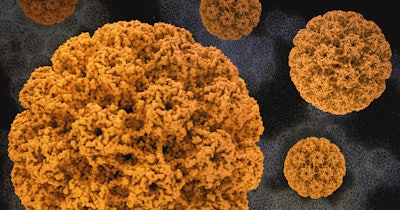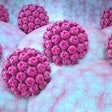
Researchers at the University of Florida (UF) have developed a testing method that utilizes CRISPR gene-editing technology to detect HPV in blood or saliva samples that could promote earlier cervical cancer detection.
The researchers discussed their method in the American Chemical Society's journal ACS Applied Materials & Interfaces. The nucleic acid assay the team developed uses Cas12a to analyze viral DNA and can be paired with inexpensive devices using smartphones for testing. It therefore has the potential to increase access to easier diagnosis of the virus that causes most cervical cancers, especially in resource-limited areas.
While CRISPR technology has been used effectively in diagnostics, it often requires preamplification to increase the target concentration before the virus can be detected, which adds complexity to the process and increases the risk of contamination during handling. Thus, the UF team aimed to design a preamplification-free CRISPR-Cas assay with high sensitivity, no need for preamplification, and a simple workflow.
For the assay, dubbed Solid-Phase Extraction and Enhanced Detection Assay integrated by CRISPR-Cas12a (SPEEDi-CRISPR), magnetic beads coated with Cas12a/crRNA complexes called ribonucleoproteins capture and extract the target DNA. The ribonucleoproteins then generate a signal that can be read through lateral flow assay or paired with a portable device such as the team's smartphone-based fluorescence detector.
SPEEDi-CRISPR was able to detect two HPV subtypes, HPV-16 and HPV-18, which are responsible for about 70% of all cervical cancers, with high sensitivity and specificity, as well as Parvovirus B19.
Because it is primarily caused by a virus for which a vaccine exists, cervical cancer is one of the most preventable forms of cancer. While effective vaccines against HPV infection are available, vaccination rates remain low. Moreover, early diagnosis through screening and HPV detection greatly improves chances of successful treatment of cervical cancer. A simple, accurate test for HPV that can be delivered at the point of care could help significantly with cervical cancer prevention.
In a statement, the UF researchers said that the assay could be adapted for other diseases caused by viruses in future work.



















